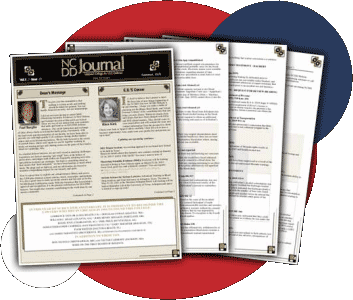- The ABA’s Concise Guide to Lawyer Specialty Certification
- Benefits to Become Board Certified - ABA Video
- Board Certified Members
- How to Become Board Certified in DUI Defense Law
- Apply for Certification
- Apply for Re-Certification Renewal
- Board Certified Senior Specialist
- Rules Governing Board Certification
- Preparing for the Exam
An Introduction to the Mouth Alcohol Defense: Why Is It Important?
Posted on October 04, 2018 in Uncategorized

- The Significance of "Mouth Alcohol" in Breath Testing
The mouth alcohol defense is premised upon the possibility of alcohol from some source other than alveolar air being measured by the testing device. It is important to recognize that the mouth alcohol defense is not limited to the presence of alcohol within the mouth. It is recognized within studies produced by state breath test agency employees that "[c]ontributions to breath alcohol concentration (BrAC) arising from alcohol in the mouth can falsely elevate the reading."[1] However, we need not (indeed, we should not) limit our consideration of extraneous sources of alcohol to the mouth only.
Residual alcohol that is present along the air passageways, alcohol that is re-introduced to the airways from the stomach, and any other source of alcohol beyond that contained in alveolar air must also be guarded against by the state. The defense bar has long limited this defense by adopting the government's terminology when discussing the possible impact of residual alcohol in breath testing. The government must ensure that alcohol from any source other than end-expiratory air is protected against.
There are two categories of mouth alcohol defenses. The first deals with fact-specific defenses such as GERD, where your client has a known condition that may cause mouth alcohol to be present. The second, and more universally applicable defense addresses law enforcements failure to adhere to their own established testing protocol. As a general rule, more fact-specific challenges to a breath test are preferred over more general challenges,[2] but this general rule cannot and should not always be followed, particularly in the mouth alcohol realm. Whatever type of defense is used, a basic understanding of the fundamentals of the mouth alcohol defense is critical.
The first step is determining whether you have a fact-specific defense in your case: was your client was chewing tobacco, gum, or did he have any other foreign substance in his mouth prior to the administration of the breath test; did he use mouth spray, inhaler, or mouth wash prior to the administration of the breath test; when was his last drink; does he have any dental devices (bridges, crowns, fillings, etc.) that may trap alcohol, and whether the client has any oral jewelry.[3]
[1] Patrick Harding et al., supra note 2, at 999.
[2] The term "general challenges," as used here, refers to a defense based simply upon a failure to adhere to established rules and protocol for the administration of a breath test.
[3] Harding and Zettl, supra note 1, at § 7.5.
——————-
Blog Post Provided By:
1447 Peachtree Street NE, Suite 530
Atlanta, Georgia 30309
Phone: (470) 228-3845
Find an Attorney
Enter your city, state, or Zip code below to locate a qualified attorney who has demonstrated a commitment to defend those accused of DUI and related crimes.








